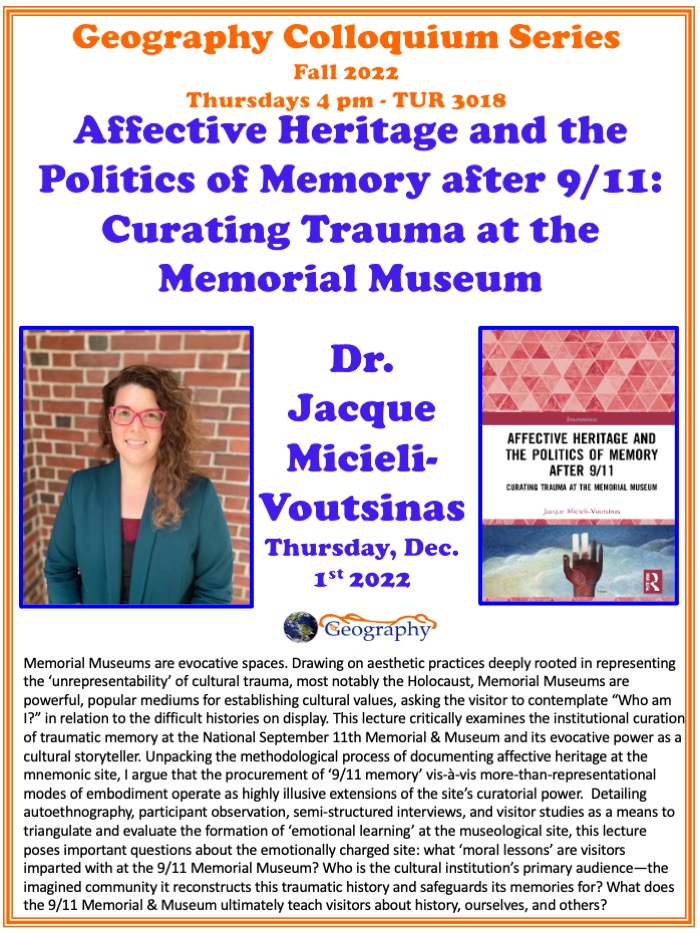 Speaker: Dr. Jacque Micieli-Voutsinas
Speaker: Dr. Jacque Micieli-Voutsinas
Assistant Professor
School of Art and Art History, Museum Studies
University of Florida
Thursday, December 1, 2022
4:00-4:50 PM (Period 9)
Turlington Hall 3018 and Zoom
University of Florida
Abstract: Memorial Museums are evocative spaces. Drawing on aesthetic practices deeply rooted in representing the ‘unrepresentability’ of cultural trauma, most notably the Holocaust, Memorial Museums are powerful, popular mediums for establishing cultural values, asking the visitor to contemplate “Who am I?” in relation to the difficult histories on display. This lecture critically examines the institutional curation of traumatic memory at the National September 11th Memorial & Museum and its evocative power as a cultural storyteller. Unpacking the methodological process of documenting affective heritage at the mnemonic site, I argue that the procurement of ‘9/11 memory’ vis-à-vis more-than-representational modes of embodiment operate as highly illusive extensions of the site’s curatorial power. Detailing autoethnography, participant observation, semi-structured interviews, and visitor studies as a means to triangulate and evaluate the formation of ‘emotional learning’ at the museological site, this lecture poses important questions about the emotionally charged site: what ‘moral lessons’ are visitors imparted with at the 9/11 Memorial Museum? Who is the cultural institution’s primary audience—the imagined community it reconstructs this traumatic history and safeguards its memories for? What does the 9/11 Memorial & Museum ultimately teach visitors about history, ourselves, and others?
Biography: Critical geographer researching landscapes of terrorism, broadly defined, exploring the evocative power of places of difficult heritage to cultivate public emotion (such as fear, empathy, and hope) and generate a collective sense of community in the wake of traumatizing events. She is particularly interested in trauma-informed museum practices and the pedagogical power of heritage landscapes to advance or impede social change.
All are welcome to attend.
For more information, email Dr. Jane Southworth at jsouthwo@ufl.edu